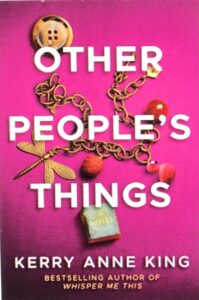I have long had a love affair with the Robin Hoods, scapegraces, and well-meaning criminals of the literary world. Given the popularity of western gunslinger and super hero movies, I’d venture to assume I’m not the only one with a fondness for good-hearted, well-meaning characters who are at odds with the laws of the land.
Nickle, the main character in my new novel, Other People’s Things, is one of these. She’s quick to admit she has a problem with sticky fingers. But she’d also tell you—even though she’s been labeled as a thief and a kleptomaniac and by the age of thirty has accumulated an alarming rap sheet—that she’s not really a thief. Instead, she runs what she calls an Object Relocation Program. Some objects in this world are clearly not where they belong, and she feels compelled to move them to where they want to be. And sometimes when she moves an object it serves as a catalyst that uncovers old secrets and changes lives.
I got to thinking about other literary characters who do the wrong things for the right (or at least understandable) reasons, and came up with this list of ten novels, old and new, that I’m delighted to share with you
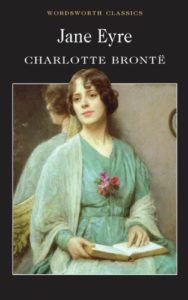
Jane Eyre by Charlotte Brontë
Let’s talk about Mr. Rochester, shall we? The darkly tormented, brooding hero who secretly keeps his insane wife in the attic while orchestrating plans to marry the young, innocent governess with whom he has fallen in love. Do I hold his planned polygamy against him? No, I do not. Obviously, at heart he’s a good man, unfairly caught up in a nightmare not of his own making. Besides, Jane loves and needs him as much as he loves and needs her. (Sorry for the spoiler, but you’ve had nearly two hundred years to read this one. If you haven’t yet—what on earth are you waiting for?)
In case you’ve managed to live this long without reading this classic, it’s about a young woman who was orphaned young and has survived a cruel and lonely childhood, who takes a position as governess in a dark, creepy mansion and falls in love with the mysterious and moody master of the place, Mr. Rochester. She falls in love with him, but when she discovers his secrets is forced to make a heart-wrenching choice.
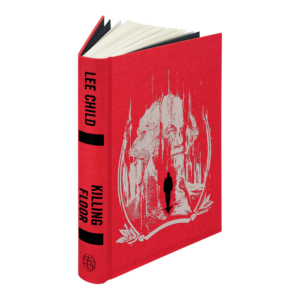
The Jack Reacher series by Lee Child
Jack Reacher is a law unto himself. He’s an ex-US military police officer who roams around the country, taking odd jobs and righting wrongs. His personal moral code is clear, and he has no problem whatsoever with stepping outside the law to take justice into his own hands. He’s a little bit modern knight errant and a little bit western gunslinger, riding into town to save the day and then riding off again into the sunset when the bad guys are all dead and order is restored.
I love Reacher, and I love the books precisely because he is, in many ways, so predictable. It’s comforting to know that he is incorruptible and unstoppable and will do the right thing, according to his code, no matter who or what gets in his way.
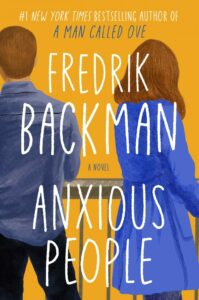
Anxious People by Richard Bachman
In Anxious People, a gun-wielding criminal takes a group of strangers hostage during a real-estate open house. Police work to resolve the crisis and capture the person responsible, only to be thwarted by befuddled witnesses and increasing mystery at every turn. If this sounds like a run of the mill police procedural, don’t be fooled! This book is anything but.
For one thing, the person committing the crimes is not a hardened criminal, but a hapless, failed bank robber, who has gotten stuck with the worst and most uncooperative group of hostages imaginable. For another, the story revolves around secrets and motives and the bonds that develop among the hostages and the hostage-taker as the pressure mounts.
I fell in love with the book on page one and rooted for the bank robber immediately, long before the circumstances and motives that led to the crime were made clear.
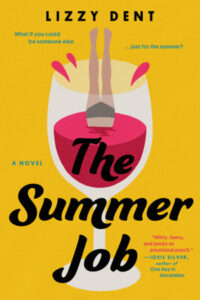
The Summer Job by Lizzy Dent
I’ll admit that Elizabeth “Birdy” Finch isn’t at all your average criminal—just a woman who has failed a lot at life and relationships and definitely at finding a career. But she crosses the line when she commits fraud, impersonating her friend Heather, a world-class sommelier, taking a job at an upscale inn in Scotland in Heather’s name.
Birdy’s original motives are as far from altruistic as she is from being an actual sommelier, but as she digs herself deeper and deeper into the deception and realizes that if she’s discovered there will be damage to the real Heather’s reputation and career, as well as the people who own the restaurant, her better self drives the rest of the action. Even though she stepped into fraud for selfish reasons, ultimately she maintains the charade with all of the best intentions.

Fool Me Twice by Jeff Lindsay
Riley Wolfe is an anti-hero whose crimes usually have nothing to do with good intentions. He certainly has no interest in justice—unless it’s to avoid it coming for him. He gets a thrill out of stealing valuable art objects—the more difficult the heist, the happier he is. He’s also not above murdering people who get in his way or double cross him (I’m still shuddering about a certain little impaling scene).
In Fool Me Twice, second in the series, Riley undertakes a job for entirely different reasons. The task? Steal a fresco from the Vatican. The consequences of failure? A slow and painful death, not only for Riley but for a woman he loves. The problem? Stealing an entire wall from a heavily guarded building in Vatican city is pretty much impossible. Still. The death and torture thing is pretty damn motivating, and he sets to work to mastermind the most challenging crime of his career.
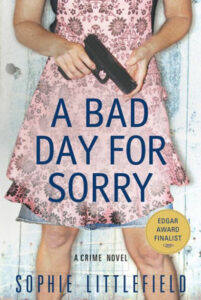
Stella Hardesty Crime Series by Sophie Littlefield
Littlefield’s vigilante heroine, Stella Hardesty, is easy to love—unless you’re the sort of man who abuses women. After dispatching her own husband with a wrench shortly before her fiftieth birthday, Stella went into business solving problems for other abused women. Most of the time, murder isn’t necessary and a little old-fashioned torture will convince a man to mend his ways, but this middle-aged heroine will do whatever is required to get the job done.
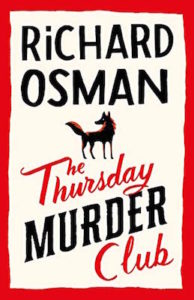
The Thursday Murder Club by Richard Osman
Four senior citizens who meet on Thursdays to solve cold cases are delighted when a real murder is committed in their retirement community. There’s no limit to the subterfuge they’re willing to engage in to get in on the action and they report fake crimes, secure evidence the police would need a warrant to get their hands on, fake dementia, and manipulate detectives with aplomb.
But in this wonderful novel it’s not only the sleuths who break the rules with good intentions—the murders they are investigating also turn out to be morally ambiguous and complex, committed for reasons that invite sympathy and understanding. One of my favorite books in a long time, and the sequel, The Man Who Died Twice, releasing September 28th, promises more of the same.
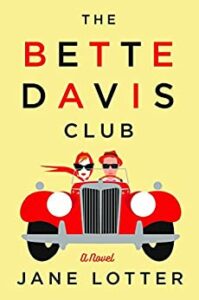
The Bette Davis Club by Jane Lotter
When Margo Just is commissioned by her half-sister, Charlotte, to pursue and bring back Charlotte’s daughter, Georgia, who has run away from her wedding and taken with her not only her very expensive wedding dress but also invaluable stolen property—Margo agrees for very selfish reasons. Basically, she’s broke, has a weakness for too many martinis, and badly needs the reward money. But as she develops a relationship with the jilted groom and discovers more about the objects that have ostensibly been stolen, right and wrong become increasingly ambiguous and Margo has some difficult decisions to make
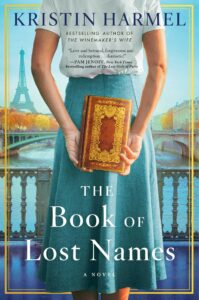
The Book of Lost Names by Kristin Harmel
The Book of Lost Names is not at all what you’d think of as a crime novel, even though the main character is a forger. Eva, a young Jewish graduate student who flees Paris during the German occupation, first forges identity and travel documents in a life and death attempt to get herself and her mother to safety. But once she has reached neutral territory, she doesn’t continue on to freedom—instead putting herself at risk by joining a resistance cell and forging identity papers for Jewish children fleeing to Switzerland. Technically, she’s a criminal but in her case it’s crystal clear that the laws are evil while the characters motivations are heroic and beyond reproach.

Justice Hustlers Series by Aya de Leon
De Leon’s lead character, Marisol, is a little bit female Robin Hood and a little bit vigilante. She’s a former sex worker and survivor of sexual abuse who now runs entrepreneur and business classes, as well as a health clinic, for women in the industry. Marisol’s motives are clear: she will stop at nothing to keep the services that empower downtrodden and abused women running. If balancing the budget requires the occasional heist involving some of the wealthy and corrupt CEOs who patronize her exclusive New York City escort service, she’s perfectly fine with that.
***


